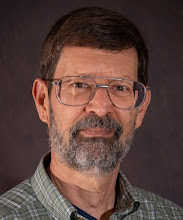As I went to a Christian college, I was more formally introduced to systematic theology, and became aware of competing versions, as the Calvinism vs. Arminianism debate was constantly relived in the dining hall, chapel, and dorms. I settled in to the “4 point Calvinism” camp, and learned how to defend that perspective, often times not so gently and respectfully!
The system was very comfortable. I had the answers in a neat package. I could recite the key proof texts, chapter and verse, to defend my position.
Then I encountered life!
As I experienced the real world, away from the sheltered halls of a Christian College, meeting other people who claimed to be Christians, but whom believed very differently, some with their own competing systems, some rejecting the systematic approach altogether, I initially dug in and defended my system as I had in college. This led to some division and discord, as I considered others who disagreed as possible heretics that needed to be outed, corrected and even denounced.
Due to geographic limitations, in one community where we temporarily lived, we attended a church with a different system. We experienced the love of unity, accepted by those who simply followed Jesus, unaware of the details of my systematic theology, which was in conflict with some of the teachings of that denomination. This gave me pause, and caused me to reconsider my system.
Actually, each phase of my life subsequently challenged my system further, causing me to see the flaws, the holes, the things that the system didn’t explain well, and how it didn’t fit neatly with real life experience. It was a bit agonizing!
Don’t get me wrong! I greatly value and appreciate the system that helped me understand God and his creation! It gave me a comfortable place to learn and grow, to connect with God. But I had become guilty of the sin of the Pharisees: the system had taken the place of God himself in importance. In my pride, I felt like I had God figured out. I needed to defend my system in all its details, because if it unraveled, I feared that the foundational truth of my faith too would unravel.
The underlying problem was that I had overestimated man, and underestimated God. I had thought that I, as a human, could make sense of the Almighty Transcendent God, and that I could fit God neatly into a box that I could carry around with me. How arrogant I was! How foolish!
The change was difficult, heart wrenching, leaving behind my comfortable system, breaking with many things that I had held so dear, reshaping my whole paradigm of life and faith.
To be clear, I never lost my faith in God, nor my confidence in my salvation through Jesus; but I did lose confidence in my own understanding of God.
This has actually been liberating!
Now I no longer feel that I need to have an answer for every question. I feel freedom to question God, to embrace uncertainty in faith, to trust through my doubt and misunderstanding, to more fully love and appreciate fellow seekers of God, no matter where they are on the path.
Systems are good, but they are no substitute for God! For me, my system was the milk that nurtured me in my infancy; it helped me grow and thrive. Now, wherever I am in my journey, maybe in spiritual adolescence, maybe further on, I need, and crave, something with more substance. That substance is God himself, not seen through the lens of a system, but seen more clearly in focus through the lens of life. However, the lens that I use to see God is limited in scope, and needs to be directed to various locations to see yet another aspect of this immense, immeasurable God. That is the work of a lifetime, and I suspect, of all eternity.
Dave Drozek
Thoughts from Athens

No comments:
Post a Comment